|
This week has been so intense, the blog is delayed and the party we had last Saturday already seems so far gone. It was a wonderful evening with friends and family who gathered to celebrate Tristan's and Brian's birthdays. The potluck spread was phenomenal and Tristan's pulled pork sandwiches were scrumptious. He brined the pork for a week and then smoked it for several hours -- yum! Crannóg Ale's collaborative brew with Parallel 49, Suspect Device, was the perfect pairing. Unfortunately, we were all having such a great time, no photos were taken! The day after the party, Maggie started to farrow. She started out quite large, so we were all wondering how many piglets she was carrying. As it turns out, she was carrying 19 of them!?! Two of them were still born and then 4 didn't make it through the first night. That was to be expected and meant that she would be able to feed the remaining piglets. The week has seen several more disappear or die, leaving us with eight piglets. Although Maggie had no health issues related to her farrowing, and Peggy is now doing fine after hers, our first experience with farrowing has been a little too stressful for my liking. Once things had settled down with Maggie, a carload of us went up to Spotted Moose Farm in Celista. After being on the farm for only two months, there is so much happening there! They've got turkeys, chickens, guinea fowl, two peacocks, Indian Runner ducks, and pigeons. Not only that, they've got Nubian goats and black mulefoot pigs. They've also just fenced 2 acres for a veg garden -- be prepared to see them at the Celista market with their delicious food! The main task this week has been weeding. Carrots have been hand weeded, along with baby lettuce, spinach, and new mustards/radishes/hakurei. The last few items were done in the nick of time -- re-covering the beds with remay as the rain blew in. The photo above shows the pea trellising system we're going to try this year. Unfortunately, my battery was dying, so I couldn't see what I was taking a picture of. The crew got to try out our post hold digger and use some of our fencing posts as anchors. We still need to drop twine to the plants, however this should make picking much better this year! Yes, this means our strawberries have started! The veg crew did the first sweep of the patch yesterday and we'll have a few pints coming to market on Saturday. With a bit of sun, our strawberry patch is ready to explode with ripe berries.
0 Comments
Patricia and Yaniv arrived last week and it already feels like they've been here since the beginning of the season. They've been thrown into onion weeding, harvesting, seeding, and transplanting -- all within a few days -- and they are dealing so well with the fast pace of this part of the season. Patricia is originally from Joliette, Québec, and has been spending most of the last three years WWOOF'ing around the world. She is presently looking forward to settling into one place for several months. We appreciate her quiet cheerfulness and eagerness to contribute. Actually, we're so fortunate that everyone in the crew is willing to chip in in such a variety of ways! Yaniv has recently obtained his Canadian residency status (hooray). He also holds citizenship in Israel and the U.S. Yaniv's cool-under-fire presence and being fine with messy situations made a huge difference in being able to help Peggy on Saturday. Patricia and Yaniv have such a romantic "how did you meet?" story. They were both working on a horse ranch in Costa Rica and were paired up to care for the horses. Their relationship deepened as they explored the splendid landscapes of Costa Rica with their equine charges. So sweet. Since then, they have travelled through Australia, New Zealand, and South East Asia together, in addition to working on a farm in Ashcroft (hence their coming back to BC for an adventure in organic mixed farming!). On Monday, we were treated to live music on the farm: Chicken-Like Birds and No Mothers delighted us with their tunes in the studio. A trio of toddlers were wriggling away to the music and several of the adults could be seen tapping their toes. Thanks to Anne for organizing this. Both duos will be playing at Wine-Oh's in Calgary on Thursday (8 PM) if you know of anyone who might be interested -- spread the word! Chelsea has some fantastic photos of the pigs! The one of Tristan running out of the boar's pen is pretty darn funny. Looks like Tristan has a healthy lead on the boar, though, so there's nothing to worry about. Peggy farrowed on Friday with 12 surviving piglets -- she ran into some complications on Saturday and it was all hands on deck to help her out. We were fortunate to have so many people around to contribute (both an unexpected visit from an old pig farmer and a requested one from a friend who could show us how to do stitches). Yaniv observed the stitching process and was able to convey to Tristan how it's done after the initial ones burst. At the end of Saturday, the whole crew created a squeeze and Tristan was able to put in 4 stitches, which are ready to come out tomorrow. Peggy is doing so much better and is great with the piglets. We're sad that she won't be able to have anymore litters, however are thankful that she is still here to care for her piglets. In terms of other farm work, with four additional hands, we're just flying through the to-do list. The crew has completed an immense amount of weeding, transplanted the celeriac and first batch of Salanova lettuce, constructed a couple of pallet platforms for camping, sanitized the strawberry picking buckets (we've found a few fully ripe ones!), and seeded in the field and in trays for future transplanting. We're gearing up for a great weekend of celebration -- hope to see you out here on Saturday for the Pints, Pulled Pork, Potluck Party to celebrate two birthdays and raise funds for solar power on Golden Ears Farm & Crannóg Ales/Left Fields Farm! 4:30 right here on the farm: https://www.facebook.com/events/1590612947915640/
It has been a rapid transition to weed season -- we're still trying to get transplants into the ground and potting up loads of seedlings, and the weeds are glowing green in the fields! We are making headway in the onions, however, and aiming to get the weeds while they're still a manageable size. The corn transplants are doing really well and we are so pleased with this. Stories abound about how sensitive corn is to transplanting, yet every germinated seed that was put into the ground has settled in nicely...can't wait for sweet corn this year! We're still setting beds, seeding, potting up, and watering (an interesting game of strategics with the ongoing heat lately). As you can see in these photos, we're all in high gear to get it all done. And David and Chelsea seeded the last bit of potatoes on their own -- exciting! It's fantastic to have Sieglinde's back in the mix. They are my absolute favourite and the crew can try out the German Butter potatoes that I keep raving about. We're a little in shock about how early the strawberries are this year. They've been in blossom for a while, however Tristan snapped this shot on Monday during our farm walkaround -- berries forming. It's looking like we'll have strawberries at the end of May this year...egad! Our last two interns arrived this afternoon, having driven all the way from Montréal. We are looking forward to getting to know Patricia and Yaniv...after they've had time to settle in and acclimatize following so much driving. Stay tuned for their 'official' introduction next week!
Hello from Golden Ears! This week's update is coming to you from the dirty fingernails of the newest interns -- we have a good excuse for our filth, though! This week has been all about transplanting our vegetable babies into their new homes in the field; this involves a lot of time spent on our knees with hands in the dirt, lovingly placing each onion, kolhrabi and little lettuce head into the ground so that it can grow up to reach its full tasty potential! Yesterday alone, we planted over 600 corn in the field, with over 2,000 seedlings, total, going into the ground since last week (finishing transplanting the hundreds of onions was thoroughly celebrated with cold growlers of beer). Though this job is tough on the knees and lower back, we combat it with spontaneous yoga in the field and the huge feeling of satisfaction one gets from seeing the vegetables neatly lined up in their fresh, earthy bed. Watching the different varieties of produce start to mature into their true forms has also been a treat for me. Pictured above is the beautiful Freckles Romaine Lettuce that looks like it has been spattered with crimson paint. I'm also excited about the purple bunching onions that are keeping their vibrant bulbs hidden for the time being. I'm quickly realizing that I could probably grow vegetables forever and still be surprised at the things nature can produce. Hey, is that Tristan pushing Avé through the fields?! Nope! But it is another one of his marvellous creations. Behold, our home-made flame weeder, complete with seatbelts and a master stroller pusher (Papa Cavers). This baby has been helping us combat the weeds that threaten to overrun the newly-planted seeds and bring us to our downfall. Besides being an insanely cool tool for organic farmers, the flame weeder majorly helps to prevent the weeds from even popping up, while leaving the seeds below completely unharmed. Thanks to Tristan for being so inventive in our on-going battle against the weeds! The last baby corn about to go into the field.... I leave you this week with a photo I took during last week's harvest for market (pre-vegetable mandala that is pictured at the top). One of the best things about working on this farm is the constant interaction you have with the animals here, whether it is listening to the Curlews flying over you in the field, being inspected by the resident farm cats wanting to be cuddled, or encountering Osprey epically catching their prey close by. I'm grateful everyday to live and work in a place that allows the wildlife in the area to thrive. They are as much a part of the local diversity as the humans that live here, and with organic farming practices, you can encourage them to continue gracing the landscape without polluting or destroying their habitat -- just one of the many reasons to fall in love with growing food organically!
Thanks to everyone who supported us at the market last week. We'll see you bright and early Saturday morning with a fresh harvest in tow! So far, potato planting has been the favourite activity for David and Chelsea. How could it not be; making sure each little circle has a potato in it and that one drops when it should (it's not necessarily as easy as it sounds, especially when the potato is too big to fit through the hole). Planting in action! Let it be known that rolling out brand new remay (aka floating row cover) is a glorious experience. Chelsea and David got to experience it on Monday -- the double wide remay means that for the same amount of shoveling, you cover twice the space. It's awesome! What a delight it was to see a shadow hopping along in front of me as I walked through our packing shed to close the start greenhouse at night. I couldn't help but take it as a good sign, as frogs (okay, this is a toad) have been a symbol of prosperity, wealth, friendship and abundance in many cultures and a symbol of fertility in others. For the Romans, the frog was a mascot believed to bring good luck to one’s home. The native Aborigines of Australia believed that frogs brought the thunder and rain, to help the plants to grow (excellent on the rain front!). Given how things are going so far on the farm this season, there is much friendship and abundance to acknowledge. We have repeatedly been in awe of how much we've been seeding, singulating, and transplanting. If everything takes (and we can keep up with the weeding), we'll have a rich abundance of vegetables this season. There has also been much gratitude for the help of Don Cavers, so that we could get a new rototiller that sets gorgeous beds, Sahaltkum Daycare for providing wonderful care for Avé (which means we have a solid day to get farm work done), our interns David & Chelsea for their keen interest in growing food and living in community, and Anne Grube for her help with cooking, window cleaning, Avé-care, weeding, tending to the currants, chicken care, and on and on. So much thankfulness for everyone who contributes to this farm!
This post is a bit later than intended. After the irrigation was turned on April 17, we were running all week -- finally have time to share all of this! It is, shall we say, aromatic on the farm these days after the delivery of 30 tons of organic composted chicken manure. Half of the load was dropped at Golden Ears Farm, and the other half was delivered to our friends down the road: Martens Farm and Roots Up! Vegetable Farm. They are using it on hay fields and a market garden. The truck has a 'walking floor' to unload the compost -- fascinating! With the very early, high temperatures, and little precipitation, I was starting to get worried about the crops that were seeded on April 11th. Lo and behold, I was pleasantly surprised to check up on the beets, spinach, and radishes and see that they were emerging. Here's a photo of spinach that germinated and emerged without external watering -- seeds are amazingly resilient and they remind me to have more faith in them! Soon after the spinach photo was taken, we heard the glorious sound of the Chase irrigation system being turned on. Hallalujah -- I think you might have seen me and Tristan doing a happy dance! This meant it was time to shift into high gear and transplant alliums and kale, as well as direct seed 10 beds of veg. Irrigation on the raspberries! David and Chelsea transplanting onions...we're going to have so many onions this year, and shallots, and leeks. It's going to be awesome! With all of the singulating that Chelsea and David have been doing, the start greenhouse is jam packed! Well, this was a week ago. Most of these trays are outside now, hardening up in preparation to be transplanted. We've got lots of corn that has emerged in the start greenhouse, which is exciting for us as we are trying this method for the first time this year. Here is Tristan working his egg cauldron magic. He constructed an egg washer system that allows us to put a large basket of eggs into roiling water, mixed with egg sanitizer, where it sits for 2 - 3 minutes. Once finished, we pull the basket out and hang it to dry. This has cut down a lot on the time it takes to hand wash/dry/basket eggs. Thanks, Tristan! Okay, you've been very patient. Here is little Astrid, born on April 15, with her mama Acorn, who is the daughter of April (can you see the naming trend here? Supposedly that's how you do it to be able to keep track of lineage). Astrid is a day old in this photo. You can't help but smile as you watch her get comfortable on her legs; wobbling around, then bursting out with a jump or a run here and there. She's something else!
Our pig pen got a second house moved into it on Tuesday, providing Peggy and/or Maggie with a place to have their piglets in May. They both seem quite happy with the new digs and we are eagerly awaiting the arrival of two drifts of piglets (we think and hope that the sows are both pregnant -- it's so hard to tell when they're already so large). This lovely panoramic view of this segment of the farm shows our chick coop to the far left, greenhouse, cows and both pig pens (the boar was directly underneath Tristan as he was taking this picture, so you can't see him -- I guess he's shy or just too curious). What isn't visible is the millions of wildflowers on the hills. A bunch of us went up on Saturday to meander through them and it was stunning. Bluebells, shooting stars, Johnny jump ups, gaillardia, and so many more. Thanks to Anne for showing us this magical place. In addition to loads of corn (David and Chelsea seeded a LOT so that we can experiment with transplanting early corn) and cute piglets to come, we have a nucleus of honeybees arriving on May 29. This ties in with a beekeeping seminar that will be hosted here. For full details, visit the Events page of our website. Doug Gordon is both informative and hilarious, so this learning experience will be most enjoyable. Hope you can join us to learn about these incredible creatures. We've got so much started in the high tunnels and table top hoop houses, strawberries are getting weeded, and the irrigation gets turned on soon. This can only mean that we are going to have a TON of weeding to do shortly. Seriously, though, it means that we will have an abundance of delicious, super fresh items to include in our Community Supported Agriculture (CSA) bags this year, which we still have spaces for. Program and subscription details can be found in the CSA Food Box section of our website. We would love to provide you with same-day harvested goodness from the middle of June to the third week of September (with farm pick-up, Chase delivery, and Kamloops drop-off options). Huge shout out to Kelsey for designing another fantastic CSA poster!
With the amount of seeding going on, we quickly ran out of space in the new start greenhouse that Tristan built in March. Plan B? Creating transition table-top hoop houses for the seedlings that are almost ready to be transplanted into the field (kale and onions). Chelsea and David did a fine job assembling two tables and putting new plastic on them. It feels great to have space where we can move onions, shallots, leeks, lettuce, and chard to in the next week. Plan C? Tristan completed another shelving unit in the start greenhouse, so we have waaaay more room for additional trays. Just in the nick of time for tomatoes, peppers, some brassicas, pac choi, and the next batch of bunching onions. Look at all of the seeding (on the right) that Chelsea and David did as soon as the new shelves went up! With our extended farm family, as Tristan likes to call them, we have been able to prepare a new field for the market garden this year. The newest addition is a cute little rototiller that attaches to the John Deere -- what a dream. We've seeded beets and spinach, with peas being planted shortly, into the most beautiful beds. This is a huge relief to us, as we were making do with a broken rototiller last year and it made life quite difficult.
Things are rolling here and we're quite excited to see lots of new life emerging. Looking forward to a super season and CSA Program this year (still space available)! Like most great adventures in life, our journey into organic farming, and the culture and community surrounding it, was both intentional and seemingly unforeseen. When my partner, and fellow farm intern, Nick and I started our internship at Golden Ears Farm, we really had no idea where it would take us, or how it would change (for the better!) our lives, but it surprised and inspired us in so many ways. We started off our adventure as two young city folk who really just wanted a change. A change from, well -- everything we had grown up knowing. Neither of us had ever worked on a farm, and yet deep down something inside of both of us kept saying, "You need to re-establish your connection with the earth" and eventually that yearning led us to seek out a place to begin our education, and Golden Ears Farm was that place. In the middle of May, we began our farm education with transplanting onions! We planted the little sprouted alliums in tidy rows in the field, and after a long day of kneeling in the ground, I wondered to myself if my aching hips and legs would ever recover! But they did! And as the spring went on, and the summer followed, we found ourselves caught up in all the busyness and joy of high summer. We watched as the tiny cucumber plants we had transplanted into the green house thrived and became an impenetrable jungle, we picked buckets of beautiful raspberries, feasted on juicy strawberries, and weeded -- a lot. We never quite ended up beating the weeds. We learned quickly that in farming, nature does not wait for you, it simply happens. Summer felt like a marathon that we could never really finish, but we also learned to come to terms with that. The list never ended, but that was okay, because we were enjoying life as it came. Soon we were picking what seemed like endless prune plums, reaping the first ripe fruits of all the tomato plants we had planted, caged, tied, and weeded, and we were beginning to count down the weeks left in the CSA box program. For the first summer in my life, I felt attuned to nature's rhythm; something I feel incredibly grateful to have been able to experience.
The lessons of farm life were not just confined to the food we grew, however, there was much more. Perhaps, most importantly, that community still exists in our ever increasingly detached society. Nick and I had come into our internship craving a feeling of belonging to something larger and more important than just ourselves, and we found it at Golden Ears Farm. We went on farm tours, helped out at other farms, enjoyed fantastic socials and potlucks and established connections that we hope will last for life. For two former apartment dwellers who never once saw, or talked to their neighbors, this was a pretty special and significant lesson. After six months that spanned three seasons, each with their own distinct highlights and trials, and moments of incredible beauty, our time at Golden Ears was winding down. We harvested the root vegetables, planted next year's garlic, and experienced the bittersweet transition when all life on the farm has come full circle, from greens, to trees, to roots, to livestock. Everything came and passed, including our time at the farm. We left this very special place feeling incredibly thankful for our experience, which not only got our life in organic agriculture started, but also provided us with the change we had been seeking for so long. We now count ourselves among the growing movement of young people trading in city life for a completely different experience, becoming young agrarians, and discovering how to live more sustainably. We are pretty happy we made the jump! My Internship at Golden Ears farm was all I could’ve asked for coming from the Sustainability program at Dalhousie University, where I learned about the pressing issue of rapid climate change and humanity being the driving force behind it. The program was a more holistic approach to education than I had ever experienced by bringing in professors from a diverse set of disciplines to share their perspective. The program thoroughly explained the history, challenges, and future implications for dealing with climate change.
I was then motivated to start getting my hands dirty and learn some hands-on skills and figured organic farming was the most important action to take as the majority of greenhouse gases are a result of the widespread transition to an industrialized food system. Many of us have assumed that climate change is only due to our rapid transportation around the world, which in a large part it is -- but I was surprised by how crucial the state of our food system is to climate change. Food production requires our most precious resource in water, and our time and energy at the organic level. As you go up the industrial scale, however, with the use of tractors, pesticides, chemical fertilizers and other intensive inputs (which increases the volume of work that can be done in the same amount of time), something is lost in quality and the combination of increased inputs and mechanization contributes a great deal to greenhouse gas production. While working at Golden Ears I was able to put an image to the quantity of water it takes to grow food and saw a great example of the importance of diversity being the key to climate change resilience. The consequences of climate change are quite hard to predict and will fluctuate through the seasons and years, as I saw when I arrived back in Ottawa with the non-native emerald ash borer wiping out most of the ash trees. The best way to combat this uncertainty is to diversify, as some crops might struggle while others will succeed. Golden Ears was a great example of how we can succeed through the challenges of climate change by creating whole systems that take into account many factors that are too often forgotten in the industrial process, where temporary fixes are the response to problems that inevitably arise. |
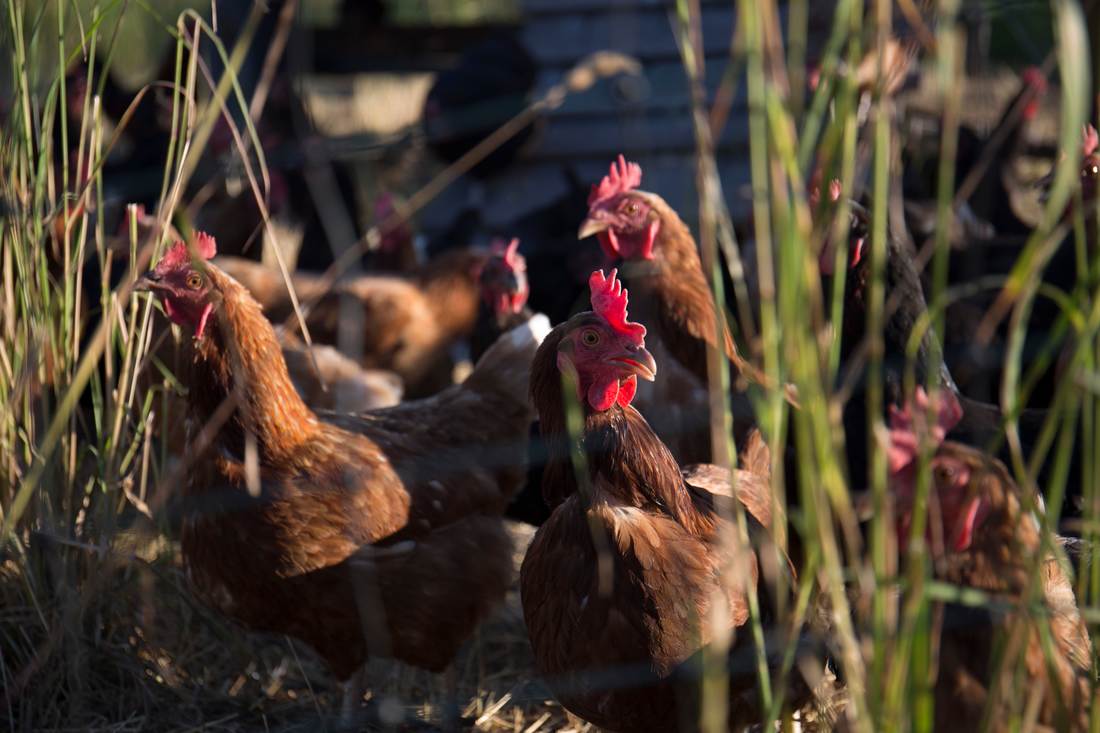
Photo credit: Martín Bustamante
Archives
June 2020
Categories |
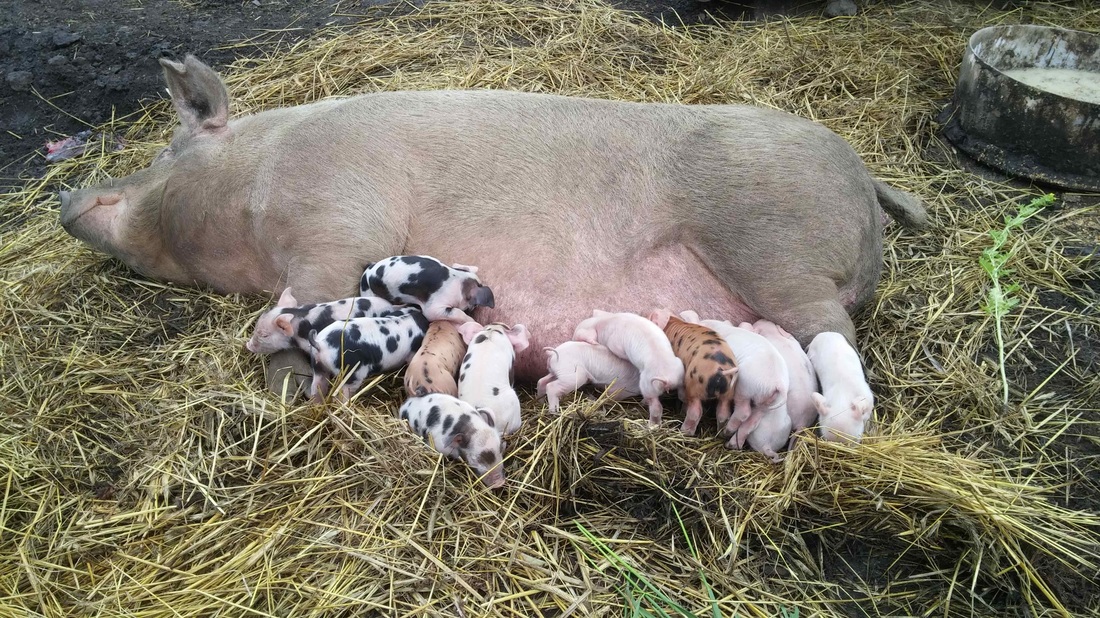
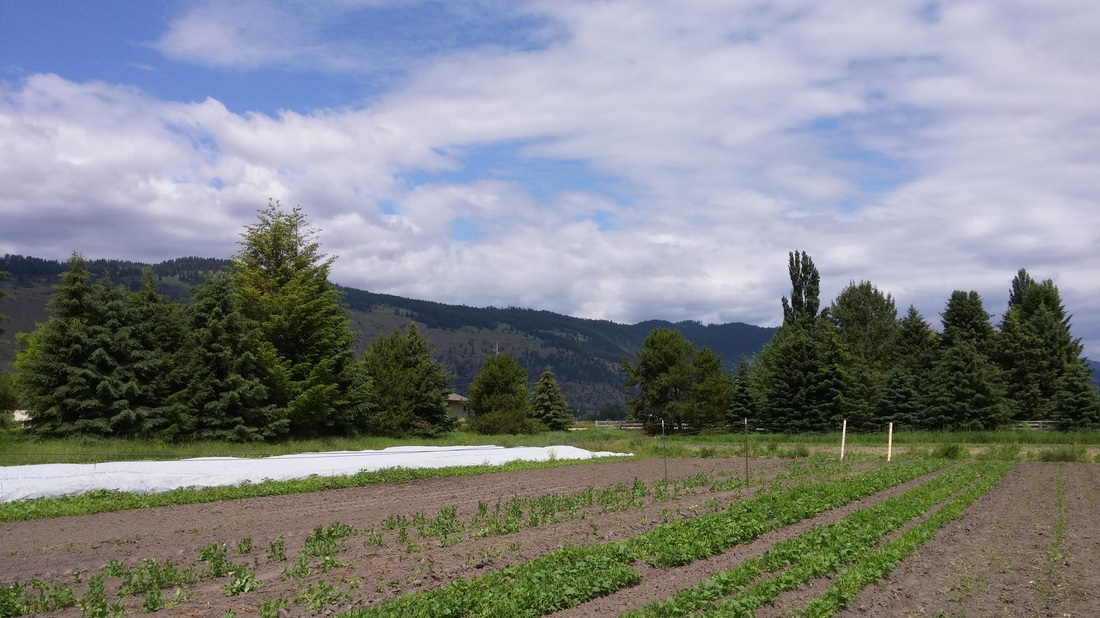
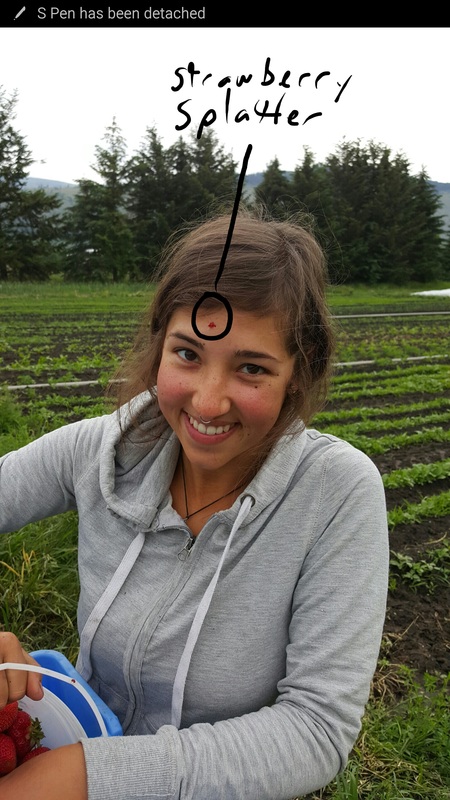
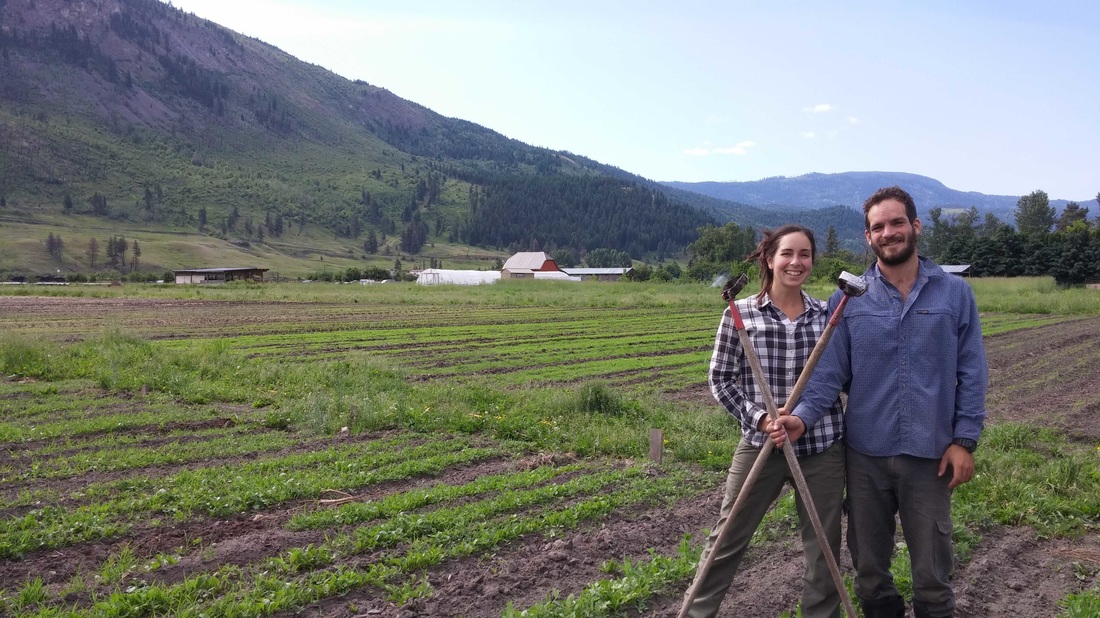
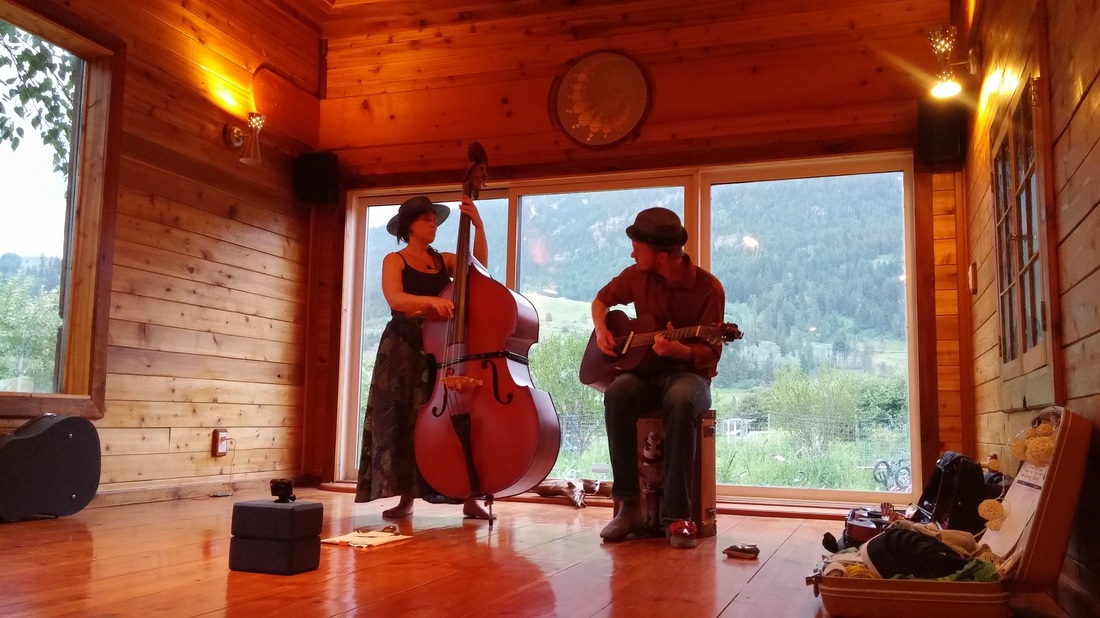
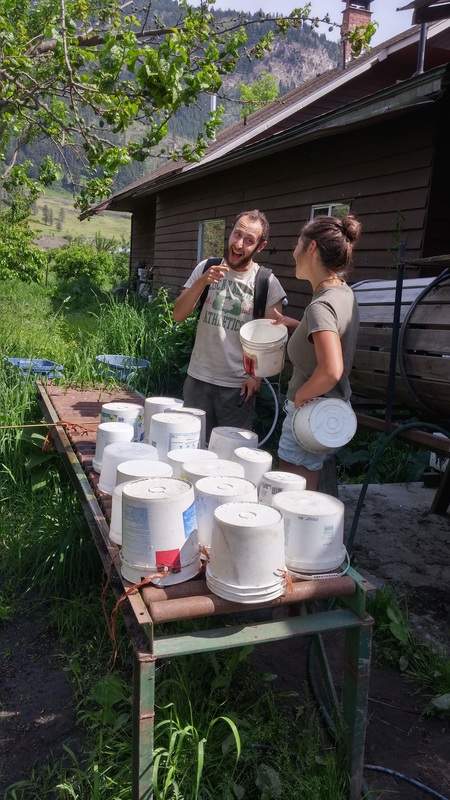
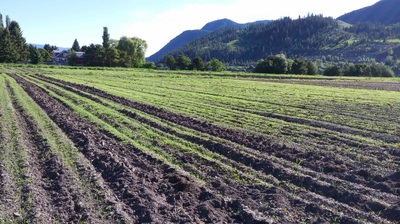
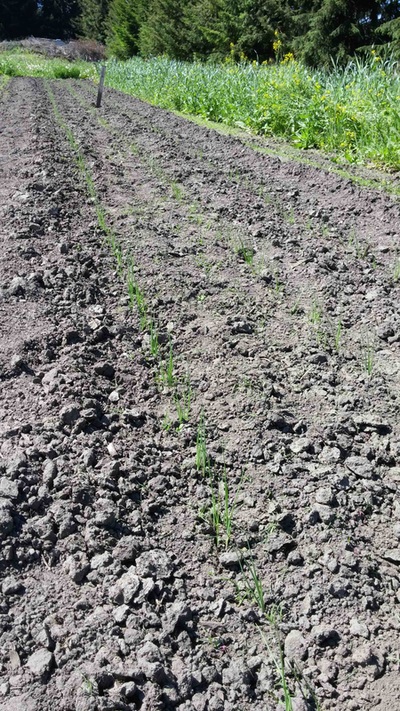
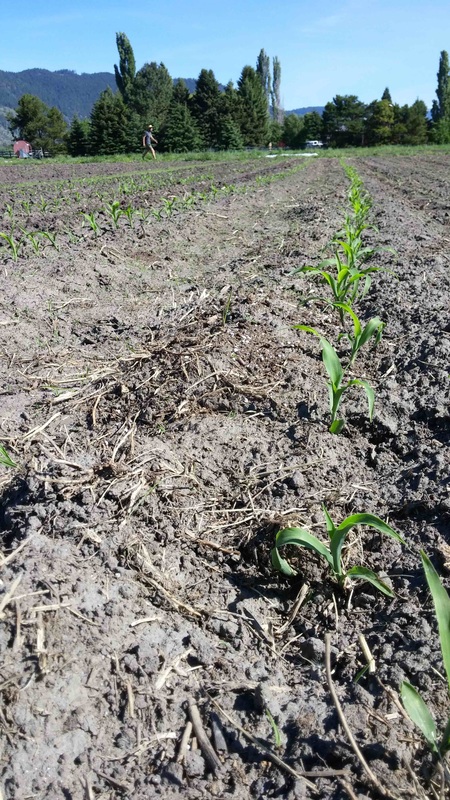
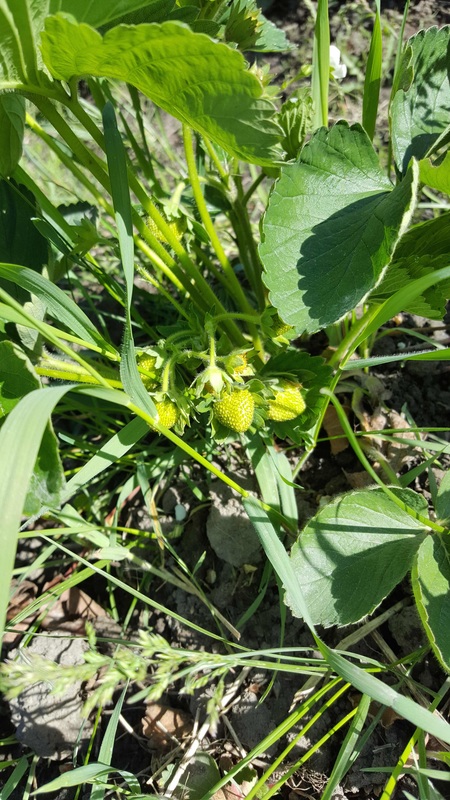
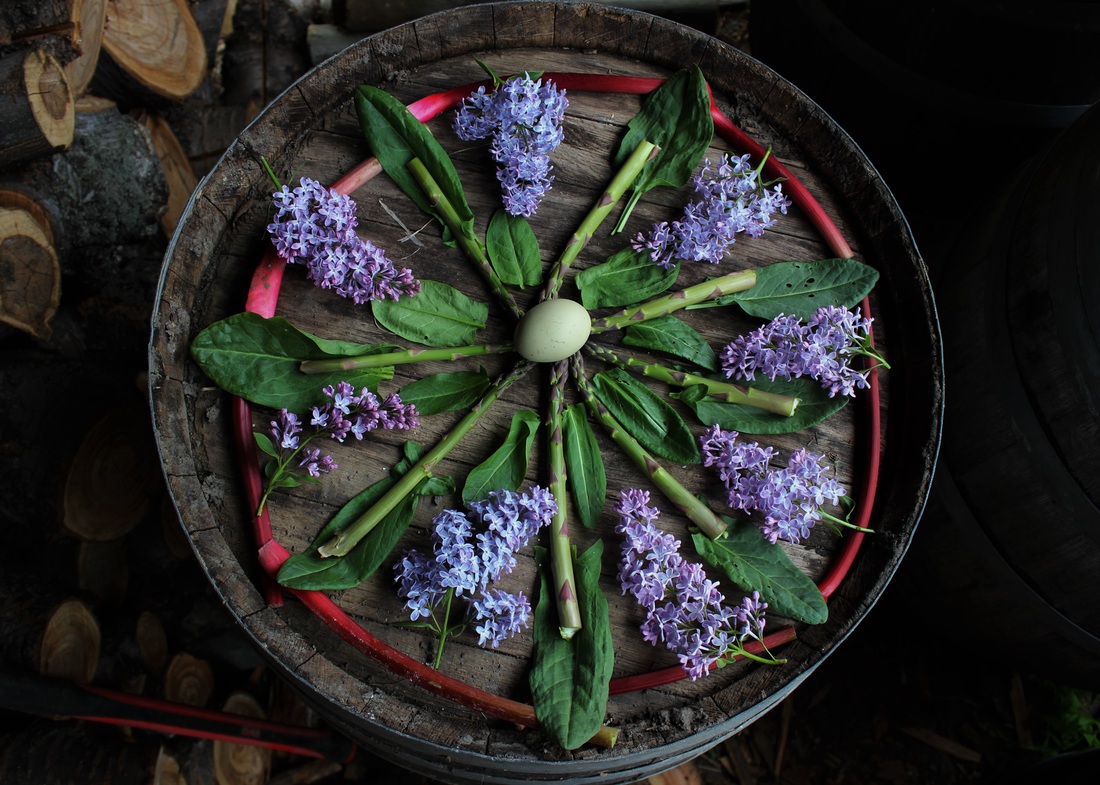
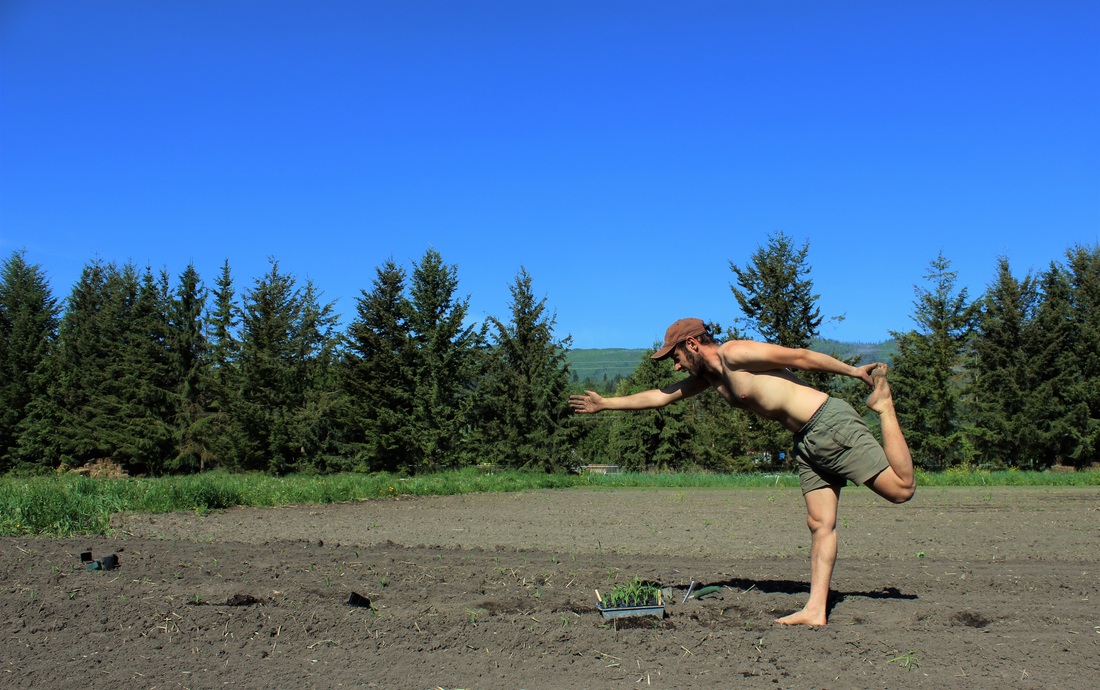
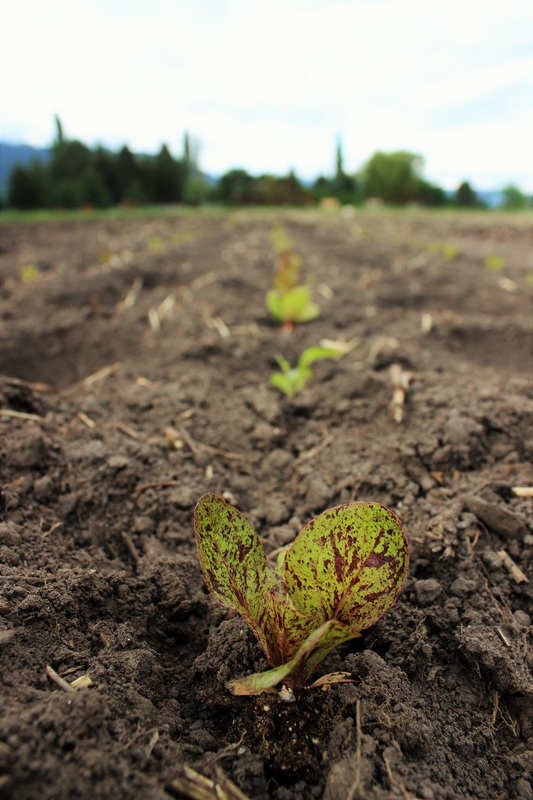
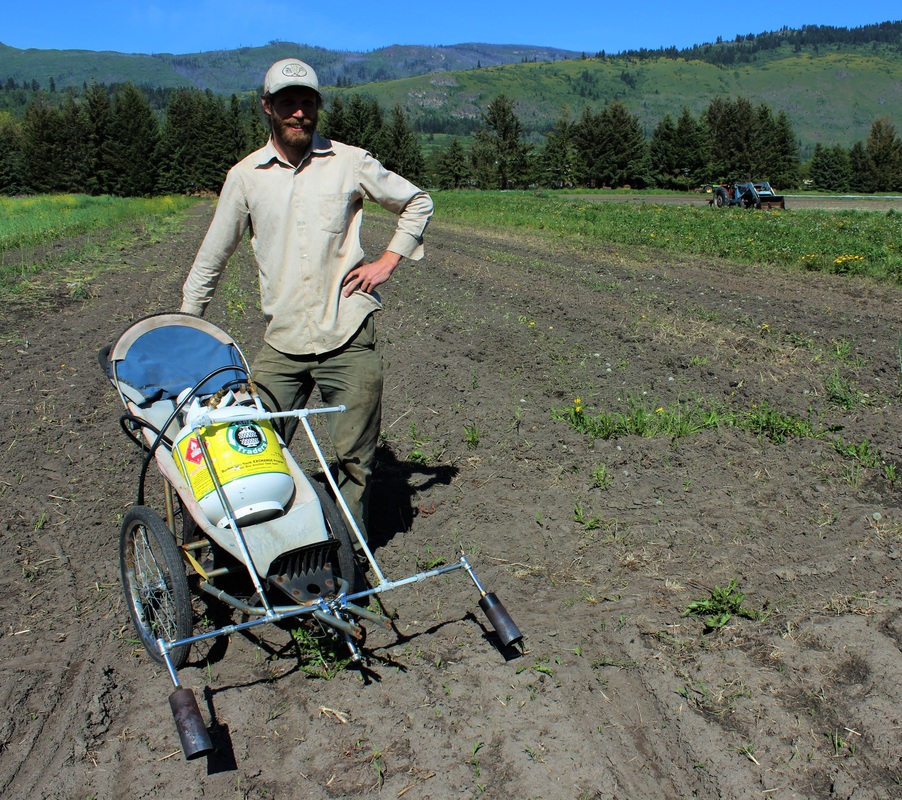
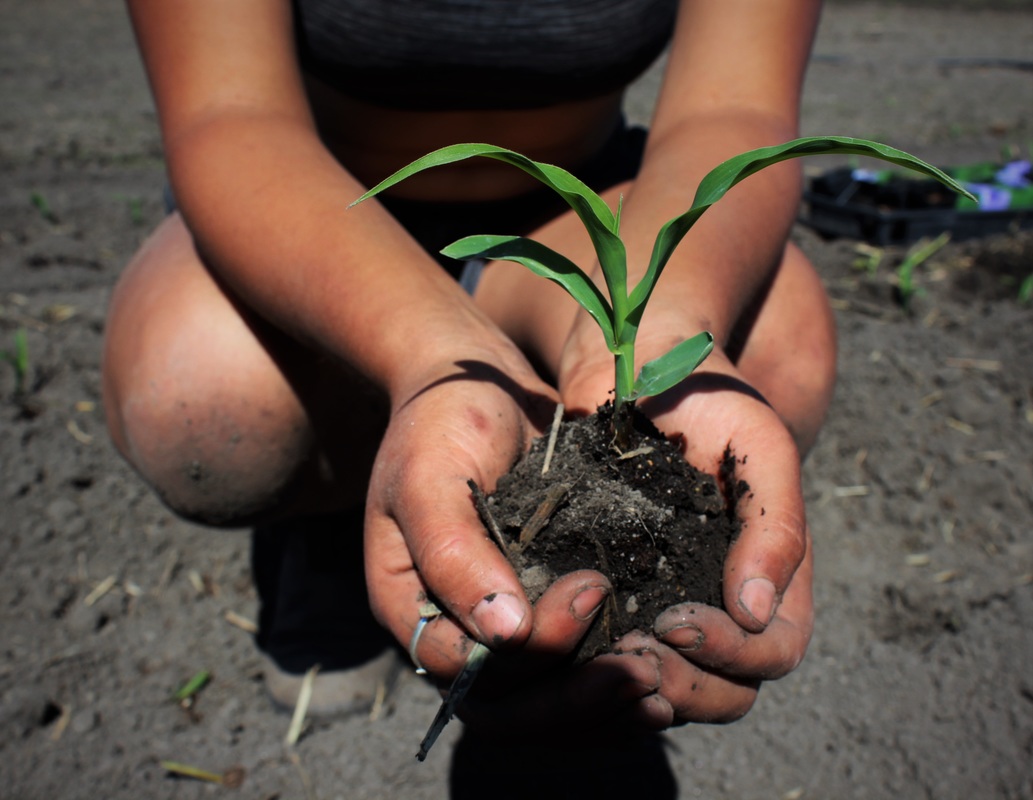
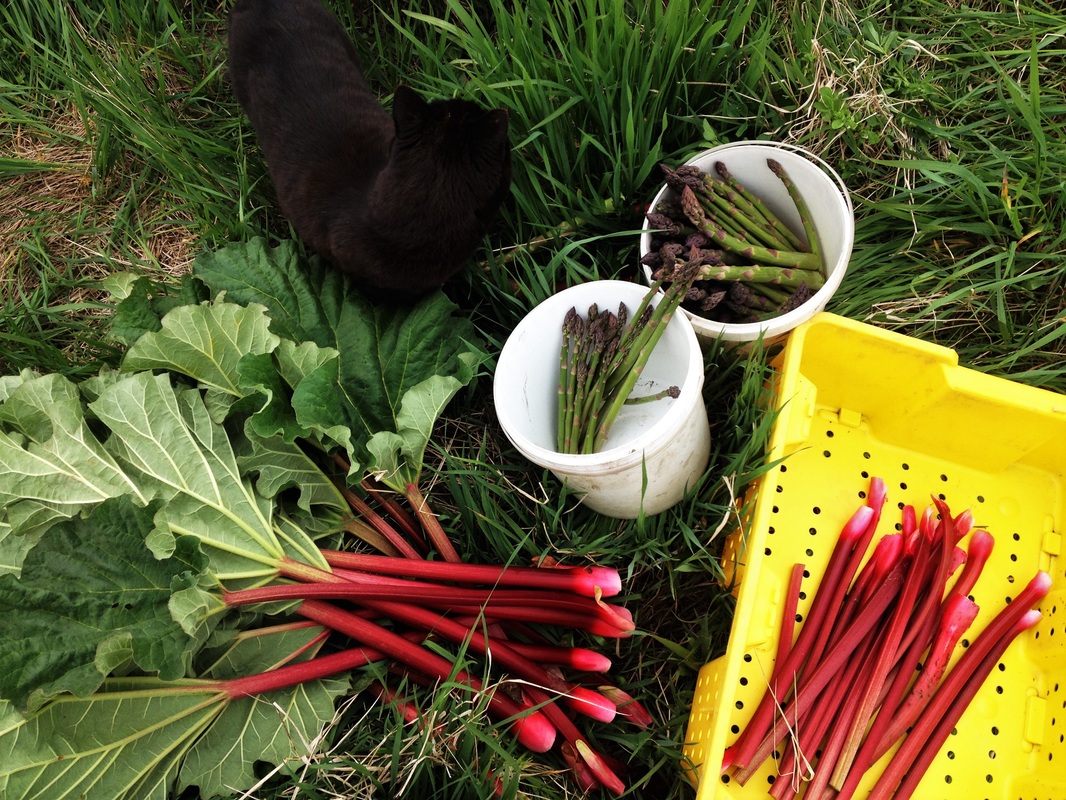
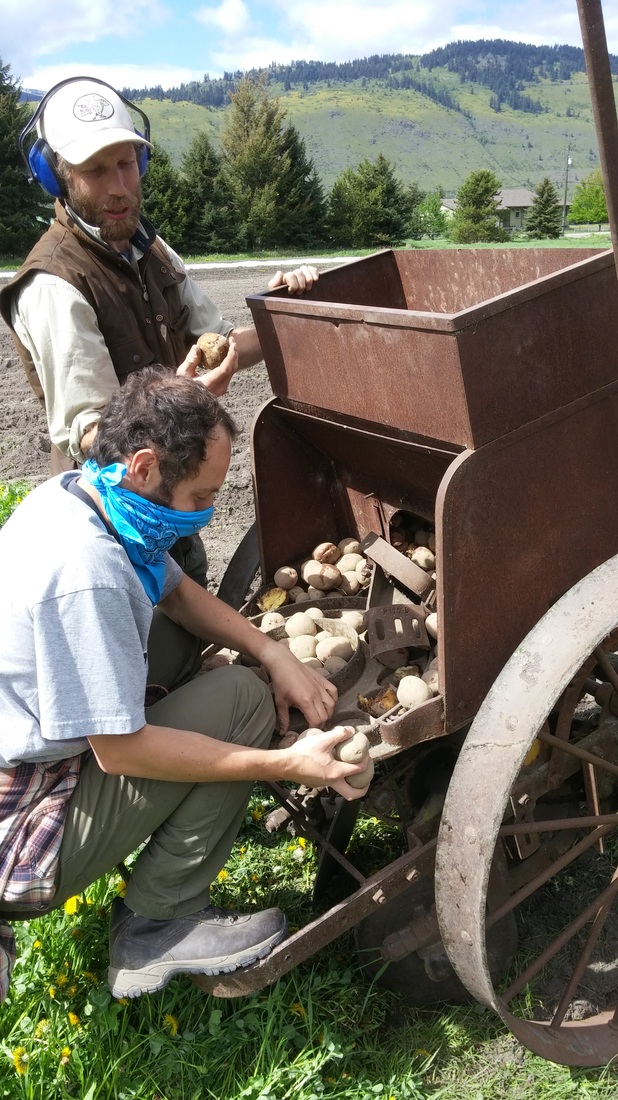
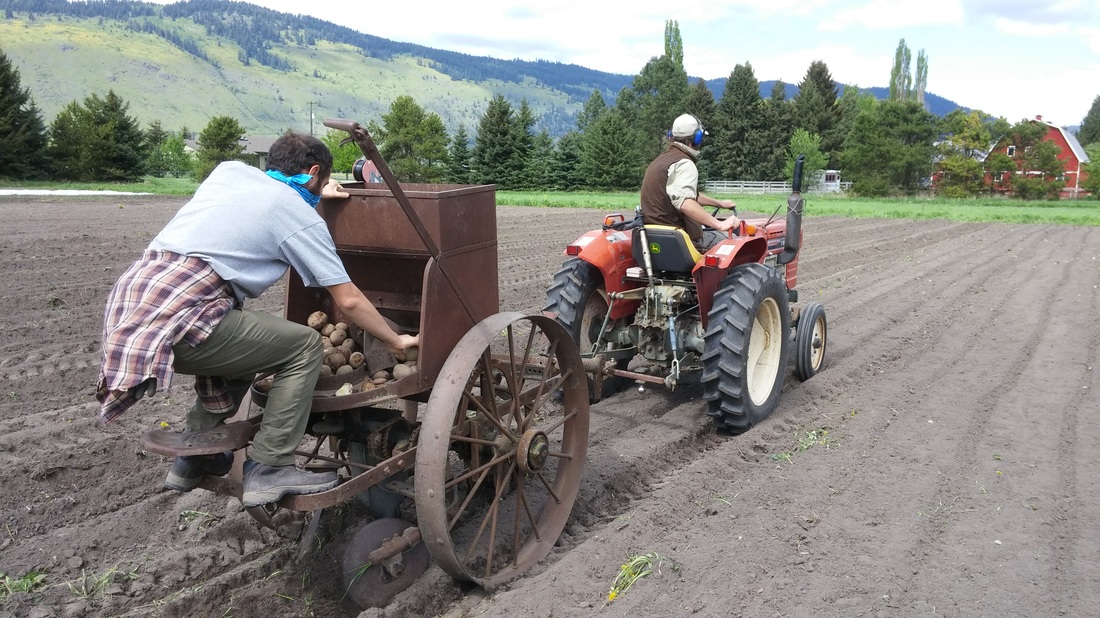
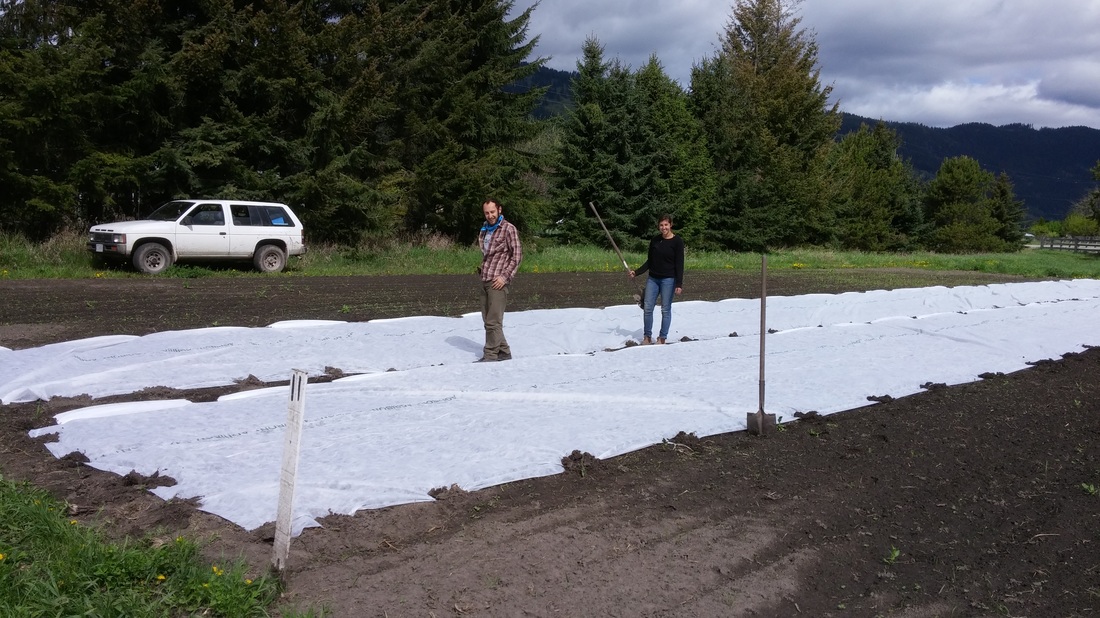
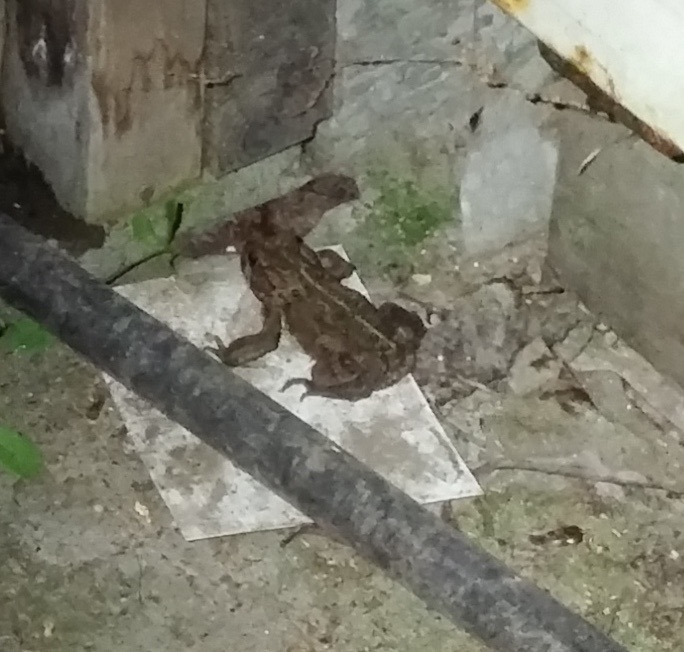
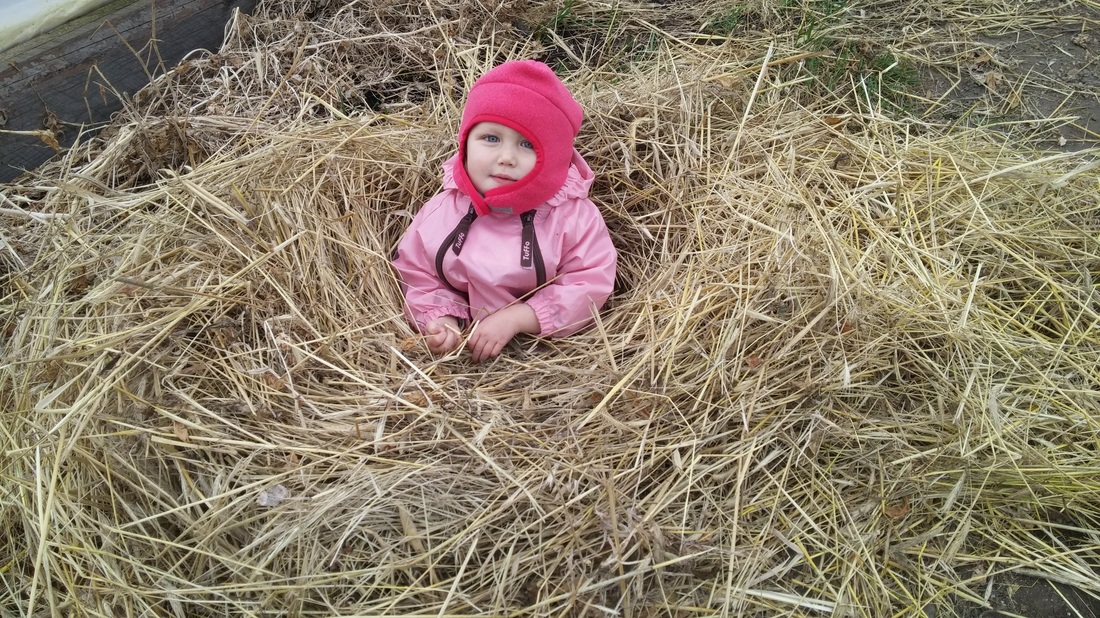
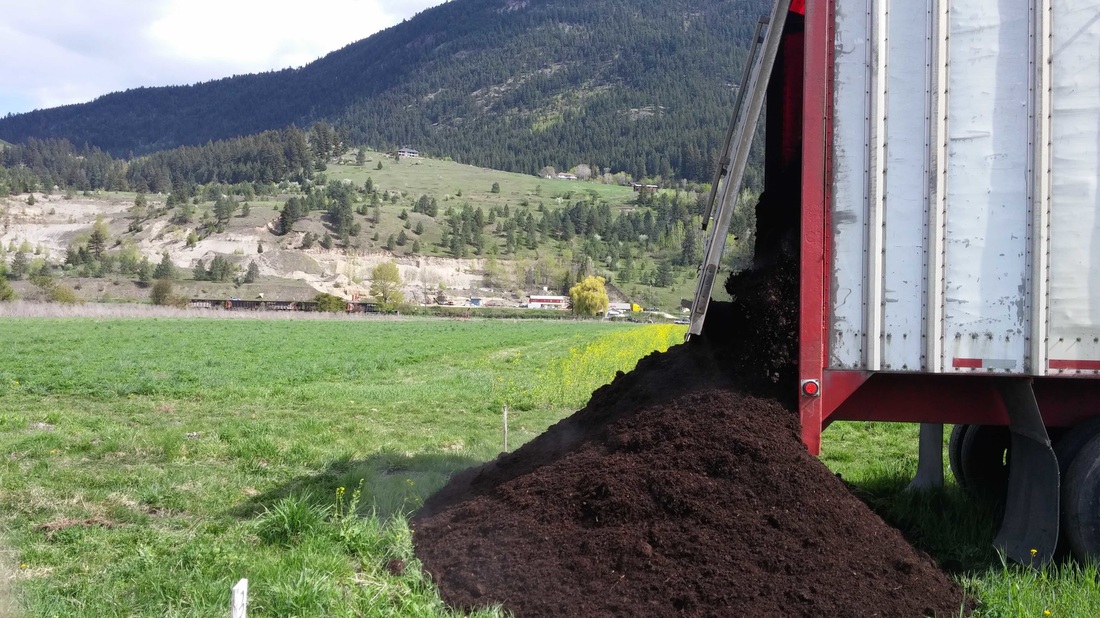
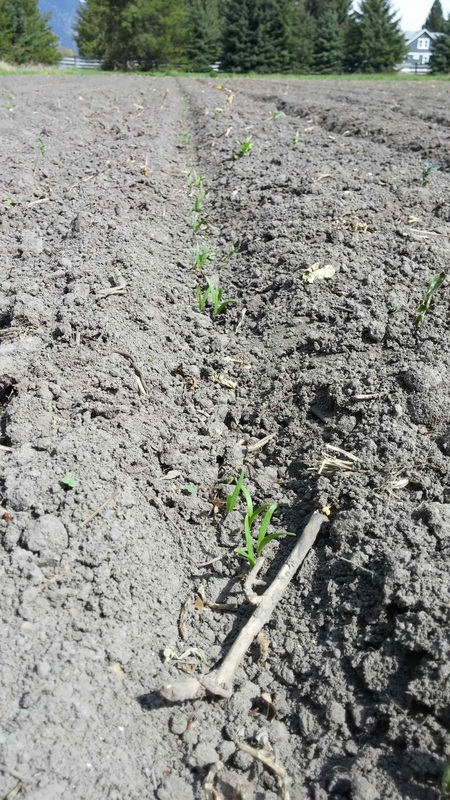
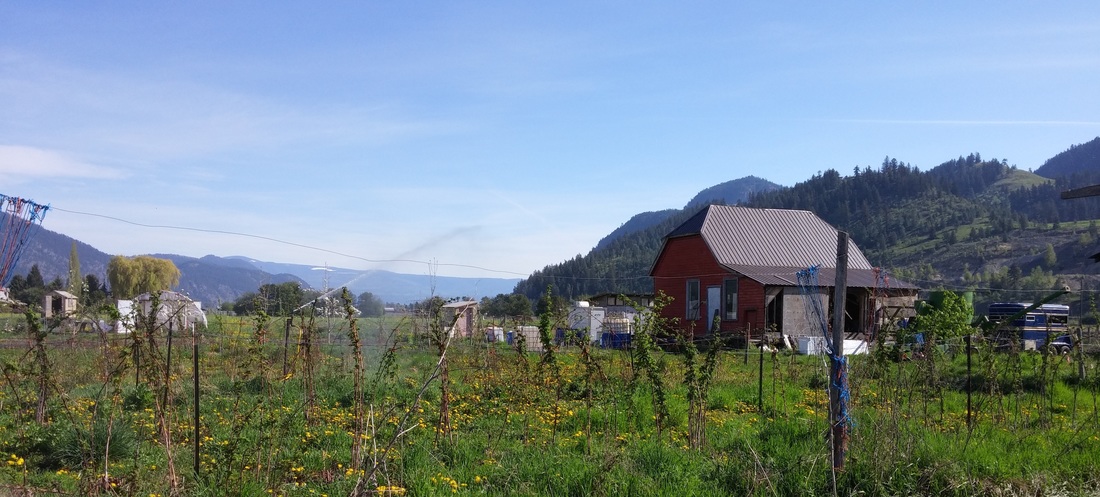
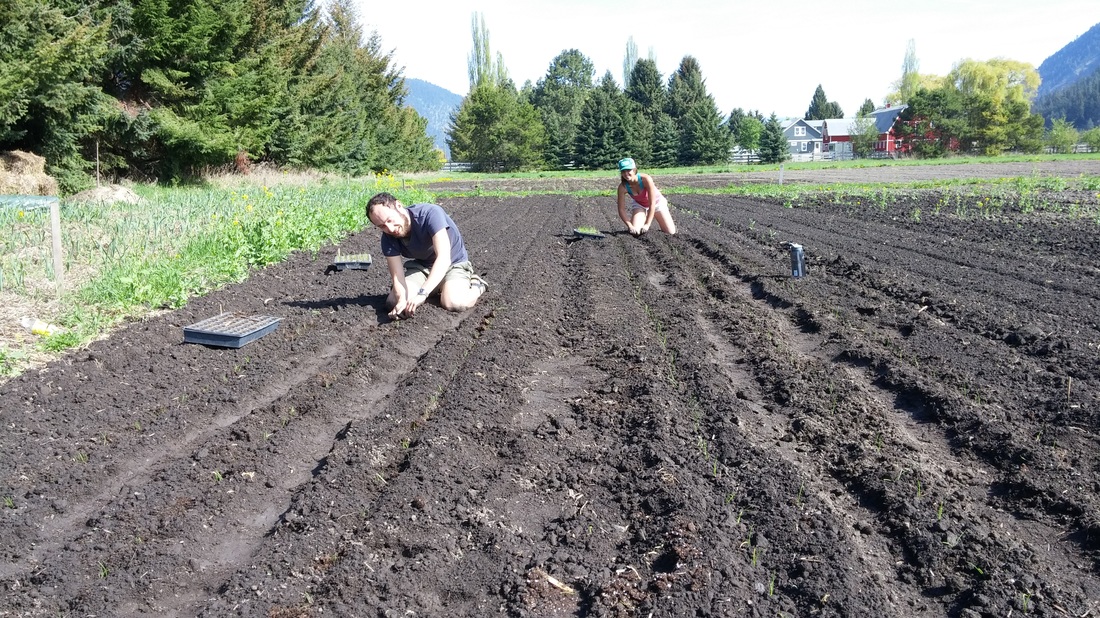
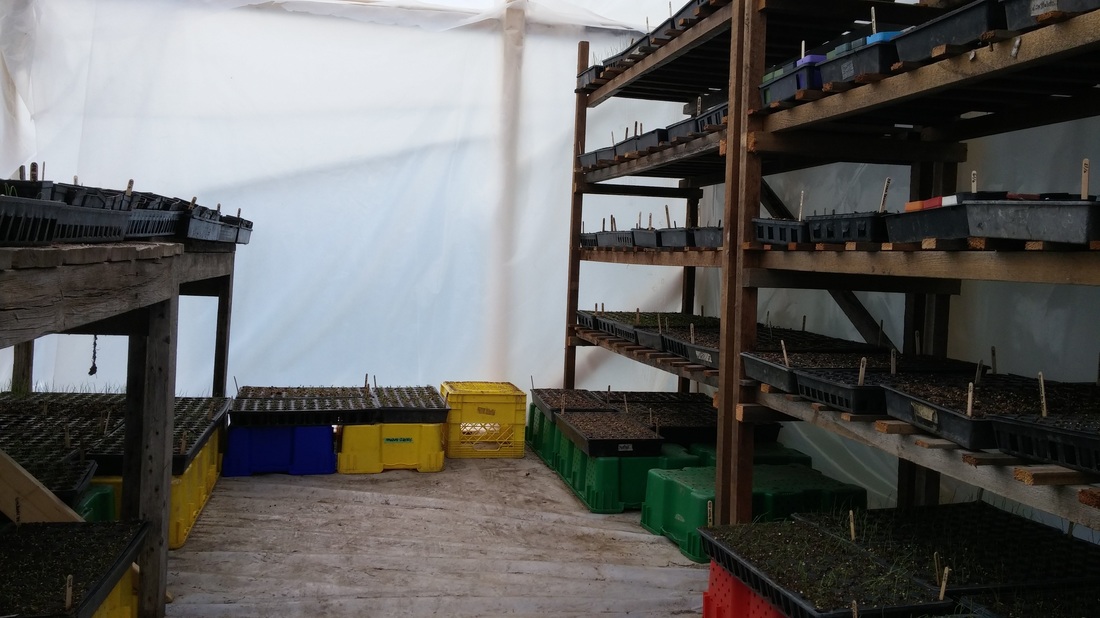
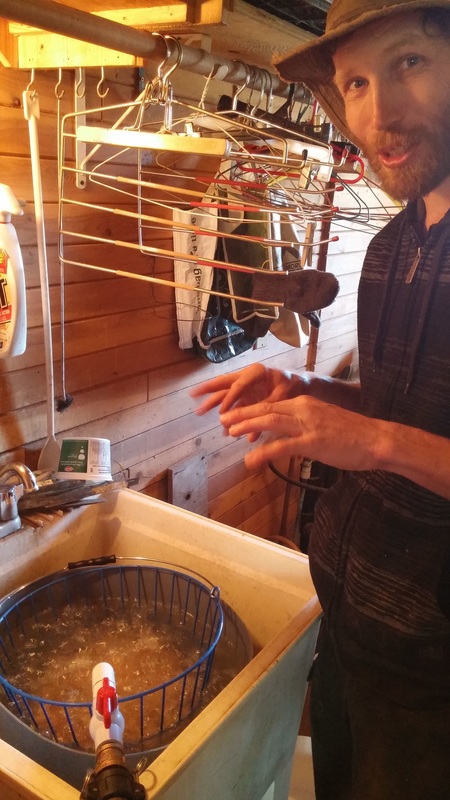
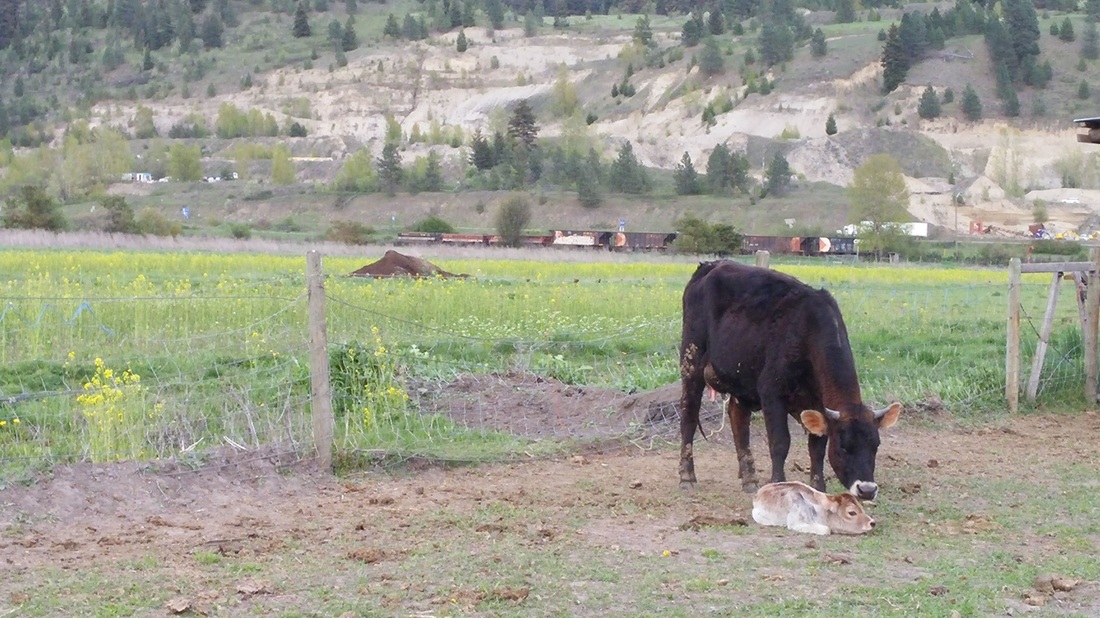
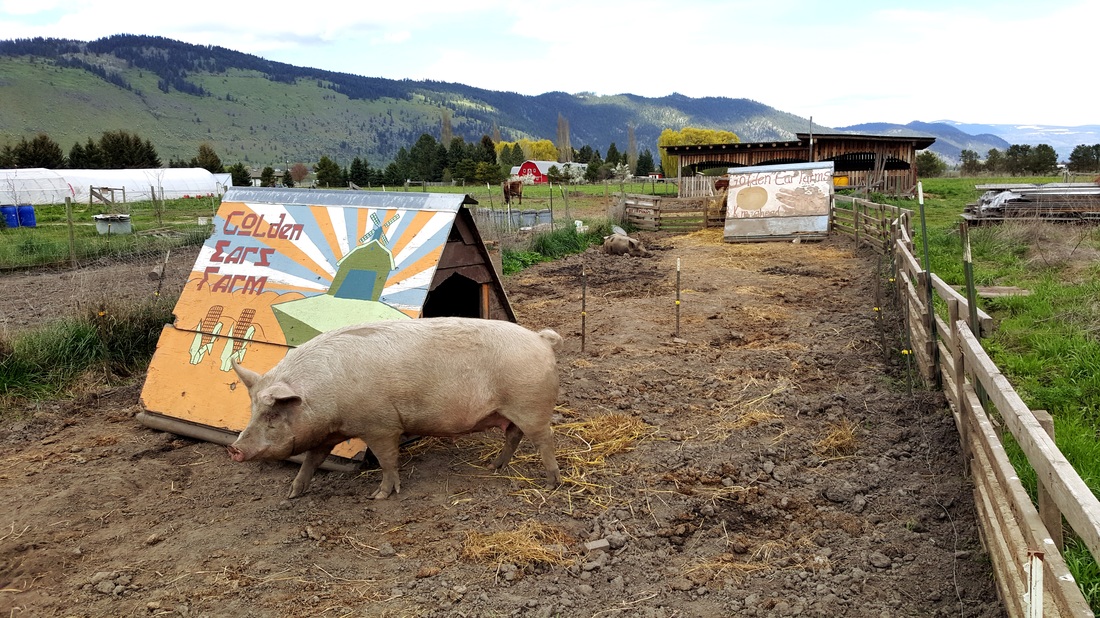
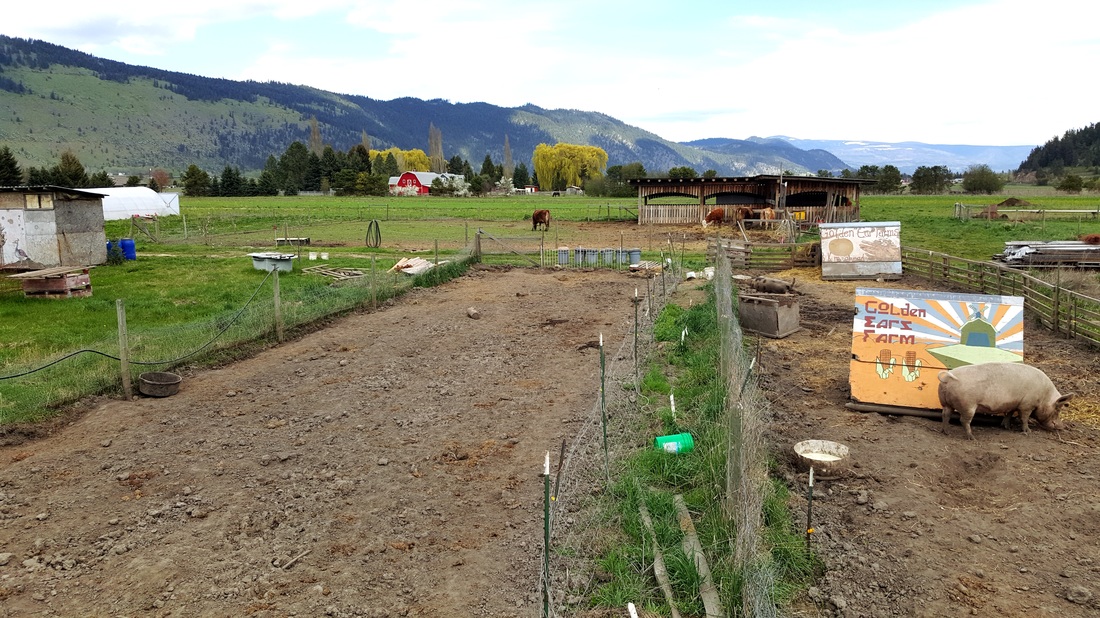
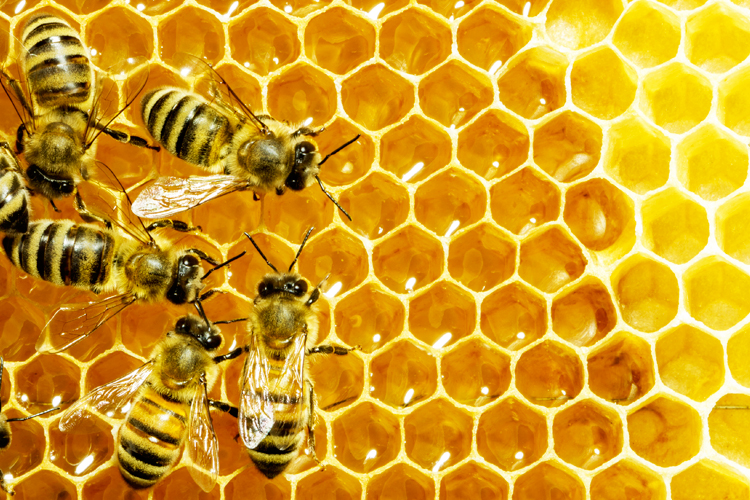
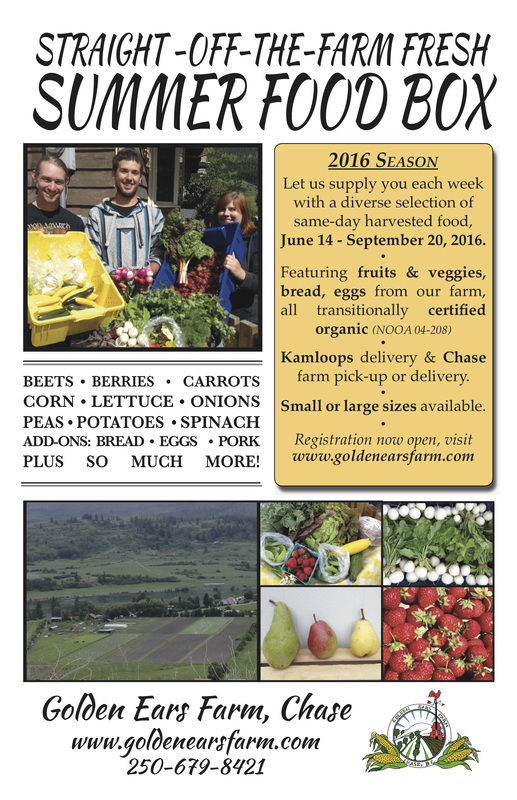
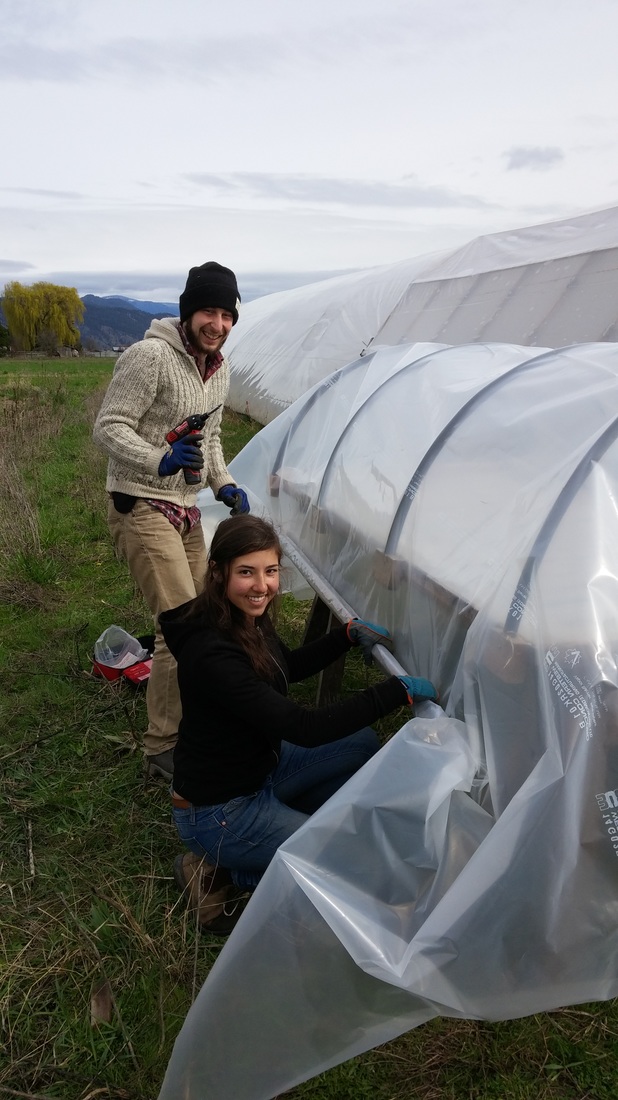
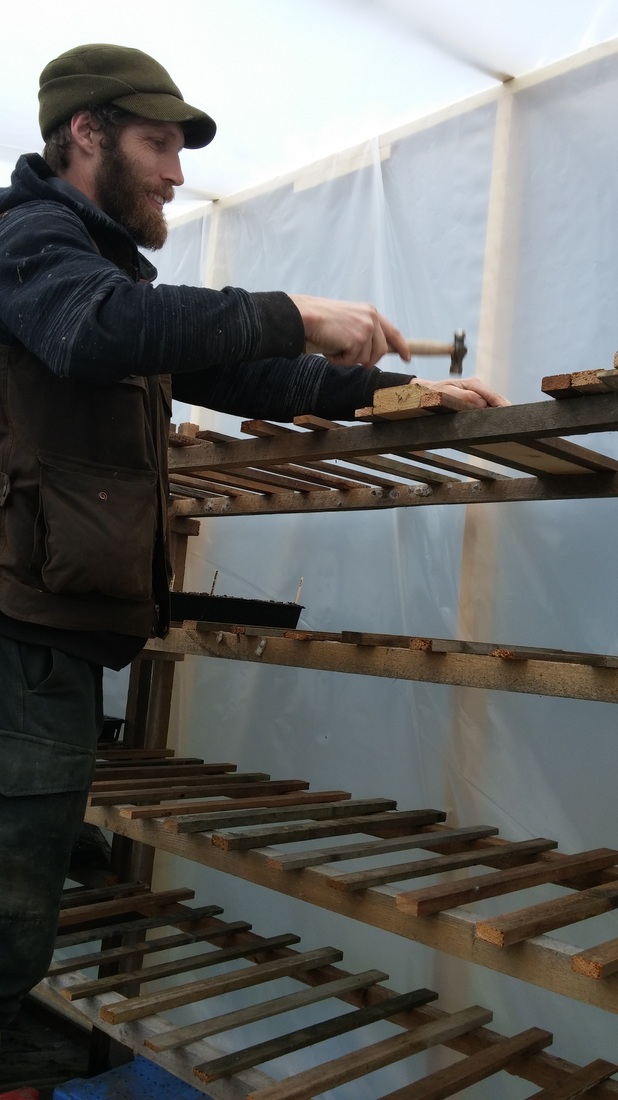
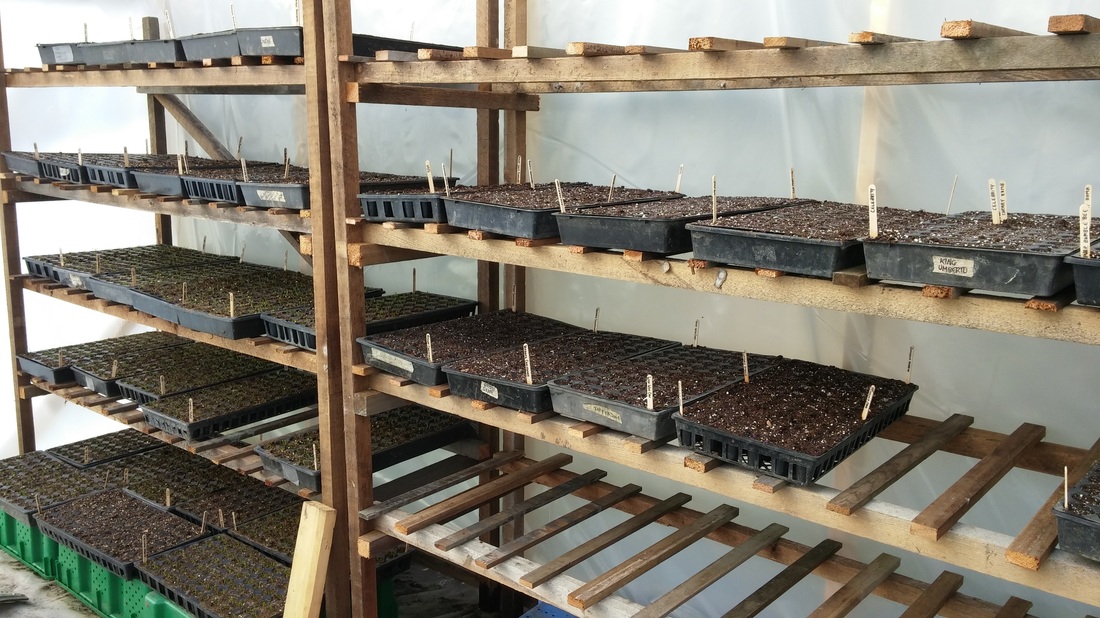
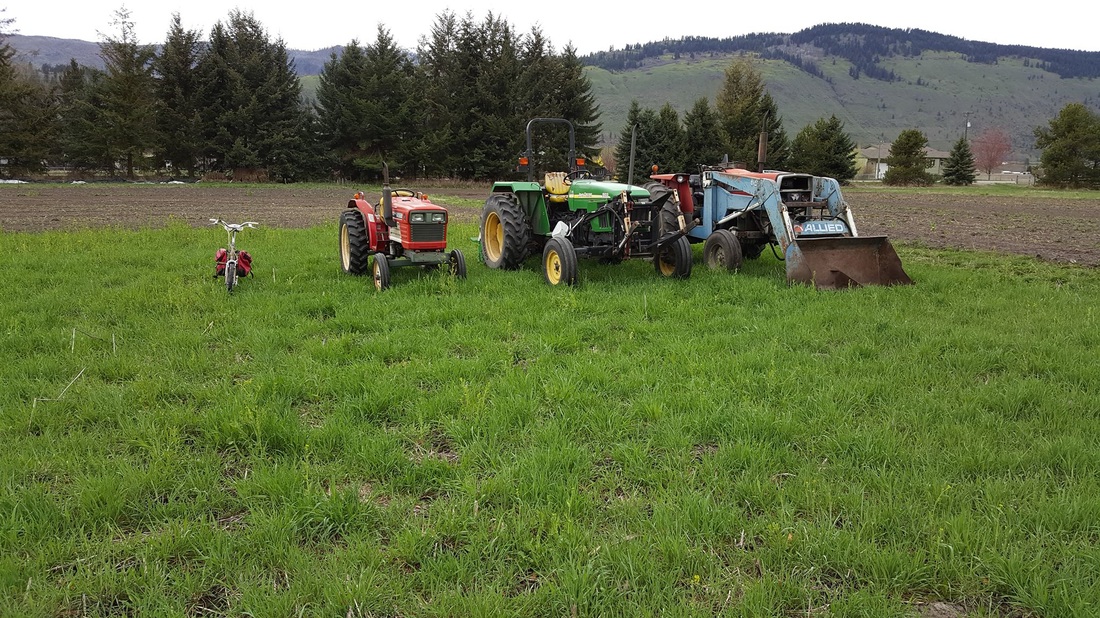
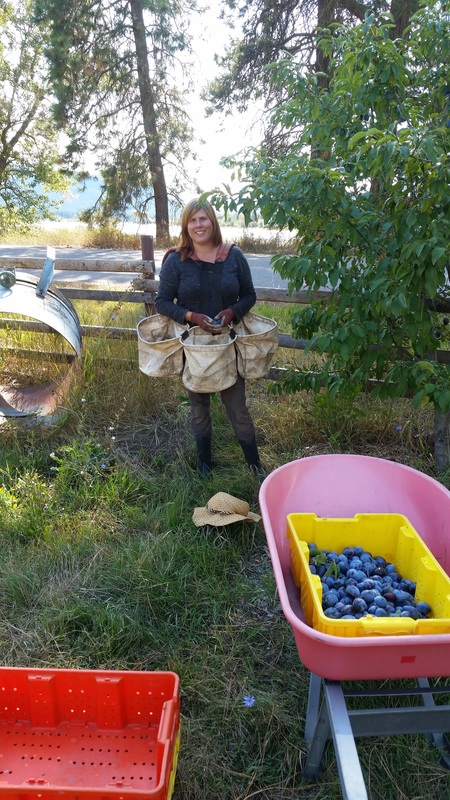
 RSS Feed
RSS Feed
